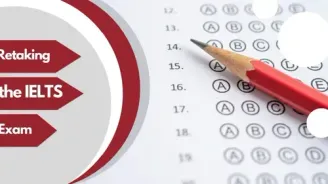IELTS Preparation Books 2025
To score well in the IELTS exam, having a good command of the English language is super important. You can improve your language skills either through self-study or by joining coaching classes. If you prefer self-study, then IELTS books can be your trusted companions in your journey. After all, as said, “Books are our best friends”.
These books are more than just a stack of pages—they’re packed with valuable practice tests, skill-building exercises, and detailed tips to help you feel confident on test day.
With so many IELTS books available in the market, finding a good one can guide you through every step of the way. Let’s explore some of the best options out there to help you on your IELTS journey!
Here’s a list of the best books for IELTS preparation:
IELTS Preparation Tips
Preparing for your IELTS test can be overwhelming, but we have some tips to help you get started.
- Take a practice test: Take a practice test to identify your weaknesses and strengths. This will help you focus your preparation.
- Understand the test format: Learn about the IELTS test format and question types for each section. Familiarity with the format is key to success.
- Be aware of time constraints: Get used to the time limits by practising under timed conditions. Practice this by setting a timer while you work on sample questions or take practice tests. This way, you'll become accustomed to the time limits, preparing you to handle the time constraints effectively during the real test.
- Develop your English skills: Remember that IELTS is an English proficiency test, so improve your English alongside IELTS practice. It takes time to progress, so start preparing at least 3-6 months in advance.
- Multitask when listening: Practice listening to English conversations and learn to recover quickly if you miss something. Understand what kind of information to provide for different question types.
- Develop a wide range of reading skills: You should focus on improving your reading abilities. Try techniques like quickly looking over the text to grasp the main points (skimming), and pay attention to the writer's viewpoints. Also, practice different question types to become comfortable with how they are structured.
- Use appropriate English when writing: The writing module may be challenging. Practice writing in a formal style for Task 1 and learn to structure essays for Task 2. Use appropriate language for different chart types in Task 1 and practice common IELTS essay topics.
- Speak fluently and clearly: Practice each part of the speaking test, including discussing a random topic. Focus on pronunciation, vocabulary, and fluency. Learn to take notes to talk for two minutes.
- Immerse yourself in English: Read in English, write daily, and listen to native speakers. Try the 'shadowing' technique to improve pronunciation and intonation. Seek feedback from others or consider an institution for guidance.


 Remember
Remember




